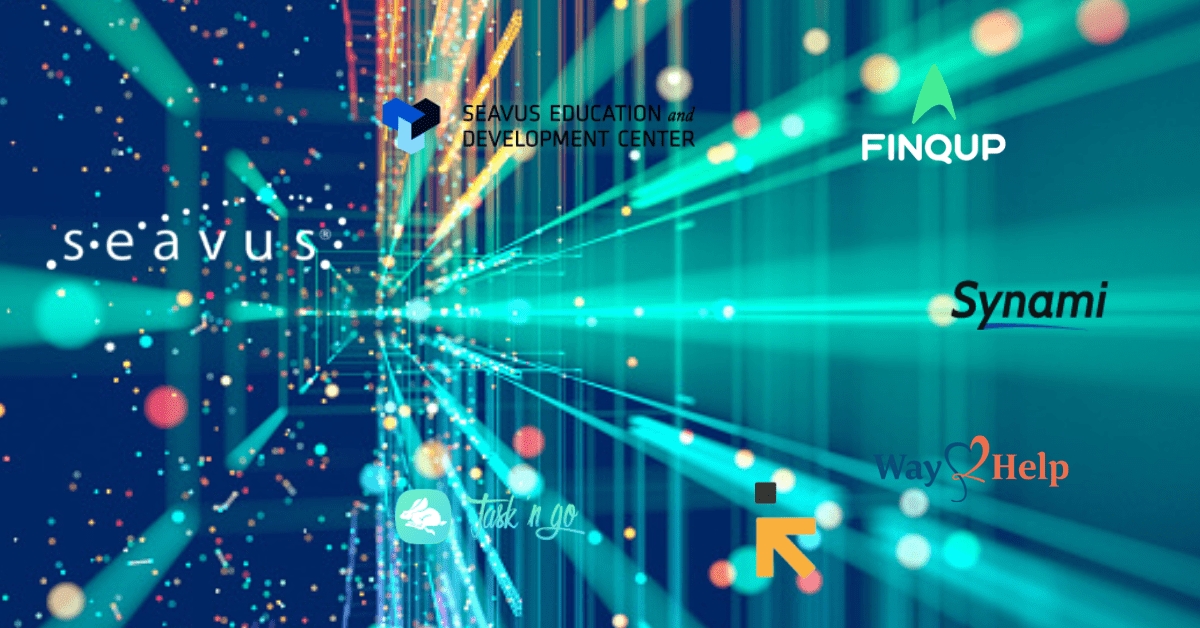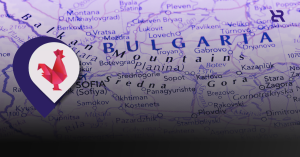Each tech ecosystem has an origin story. In North Macedonia, the development of the entire tech scene began with only a few companies.
Software development company Seavus was one of them. Founded back in 1999 in North Macedonia and Sweden, it is one of the oldest IT companies in the Balkan country and one that has heavily influenced the development of its IT industry during the past two decades.
While at its very beginning North Macedonia’s IT industry mostly relied on outsourcing IT services, this was also the core of Seavus’ main business operations.
In 2001 the company established its main development center in Skopje, and has managed to record an impressive growth since.
Today, the company has more than 1,000 employees, with 17 offices across ten countries, and its portfolio includes global telecom operators, banking and finance organizations, and various tech companies.
At the end of 2020, the company also became a part of the biggest Czech ICT holding Aricoma Group, marking another milestone in its development.
“As before, we will continue to invest in training and professional development of employees, in order to continue to be a company staffed by real experts from various fields of the ICT industry. I have always believed that employees are the key to success, and our partner is aware of that and sees the employees as the value and strength of the company,” the company’s founder Igor Lestar said shortly after the acquisition.
Vast amount of IT talent coming through its ranks
Having that in mind, considering how much IT talent has gone through the company ranks during the 20 years, the role of Seavus’ has also proven to be crucial for the development of North Macedonia’s tech ecosystem.
Many of Seavus’ former employees went on to become entrepreneurs and subsequently founded their own startups and companies, so today we can also talk about North Macedonia having a “Seavus mafia”, akin to the famous PayPal or Alibaba mafias for instance.
With key people such as CEO Kocha Boshku, nowadays Seavus’ footprint can be felt in almost all segments of the tech industry in the country.
Some of those spin-off companies, such as software development company ITgma for example, have also become their direct competitors. Founded in 2009, ITgma has thus enriched North Macedonia’s tech ecosystem by creating healthy competition in the IT industry that was only starting to develop back then.
There are examples such as Synami, another software development company that has been established in recent years. Previously the company was a division of Seavus, working on project management software tools and products.
Using the vast experience of its predecessor, Synami is now aiming to replicate that success, showcasing how new IT companies can use the foundation of what Seavus has already achieved.
Our research also came up with entrepreneurs such as Gligor Dacevski, another co-founder of Seavus that afterwards founded software product company Doxteam, or ex-employees turn entrepreneurs such as Marko Bocevski, who is the founder of successful open-source company Keitaro, or Dusko Murtovski, the co-founder and CTO of software company Vision Dynamix.

Traces of Seavus in the current startup scene
There are also those alumni that were with the company from the very beginning and have now created startups that are making waves in the country’s scene, such as Aleksandar Ackovski and his exciting HRTech startup Konceptiva, which aims to redefine how companies train their employees.
Filip Kerazovski, the CTO of Task ’N Go, a startup that works on automation solutions for existing task management platforms, was also a part of the Seavus during his earlier career, while Finqup, a portfolio management app and another rising star of the Macedonian startup ecosystem, also has a co-founder, Dime Galapchev, originating from Seavus’s ranks.
Entrepreneurs and Women in Tech ambassadors such as Monika Rizovska, a founder of the initiative Ways2Help, have also been a part of different departments within Seavus, such as the Seavus Education and Development Centre.
The company also has its own Seavus Accelerator, which looks to support startups in all stages of development, in verticals such as fintech, AI, blockchain, gaming, and e-commerce. The accelerator has been active since 2011, and during the past three years it included more than 45 startups in its programs.
Showcasing what startup ecosystem development is all about
For ecosystem experts such as Jakob Modeer from the Swiss Entrepreneurship Program, the Seavus case is crucial -this is what startup ecosystem development is all about.
“It is about creating a virtuous cycle by which successful entrepreneurs recycle their resources (knowledge, money) back into the ecosystem, supporting the next generation of Macedonian entrepreneurs. If this happens, we can talk about transformational change in the system, where the ecosystem is not only ‘pushed’ along by public money, but it is actually ‘pulled’ to the next level by private knowhow, networks and capital,” Modeer, program manager for the Western Balkans at Swiss EP, tells The Recursive.
However, Modeer adds that such examples can achieve their goal if they are also followed by other entrepreneurs and companies.
“On the other side of the coin, if successful Macedonian entrepreneurs do not step up and recycle their knowledge and wealth, well, then we are stuck in a sad cycle of under-performance. In my view, the power and responsibility to change the paradigm of the startup ecosystem now lay on the feet of Macedonia’s own entrepreneurs,” Modeer adds.
And while Seavus has been crucial for the country’s young ecosystem, there are also other successful examples that the North Macedonia can build its IT industry on, ecosystem builder Igor Madzov points out.
“While Seavus is one of the oldest players in the tech ecosystem, we also must not forget companies such as Fx3X, Doxteam, Haselt, and IWM Network. Then, there is the YES Incubator and the Innovative Center Bitola as the first entrepreneurship hubs that started out 10 years ago an helped develop companies such as Codewell, Smsadvert, 4Virtus, and others.” Madzov emphasized.








